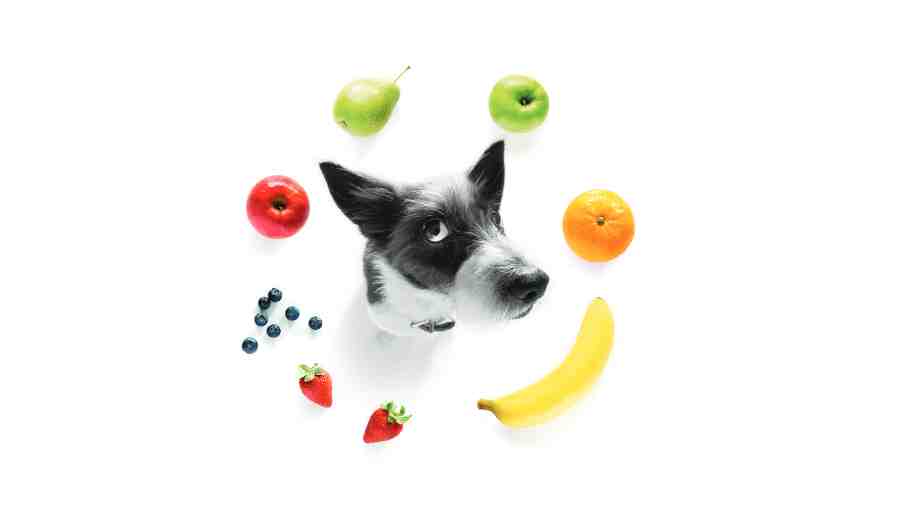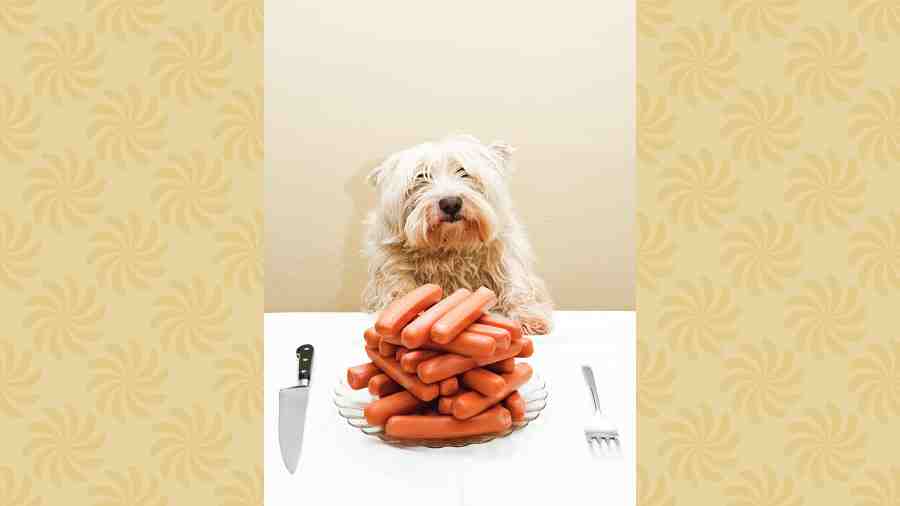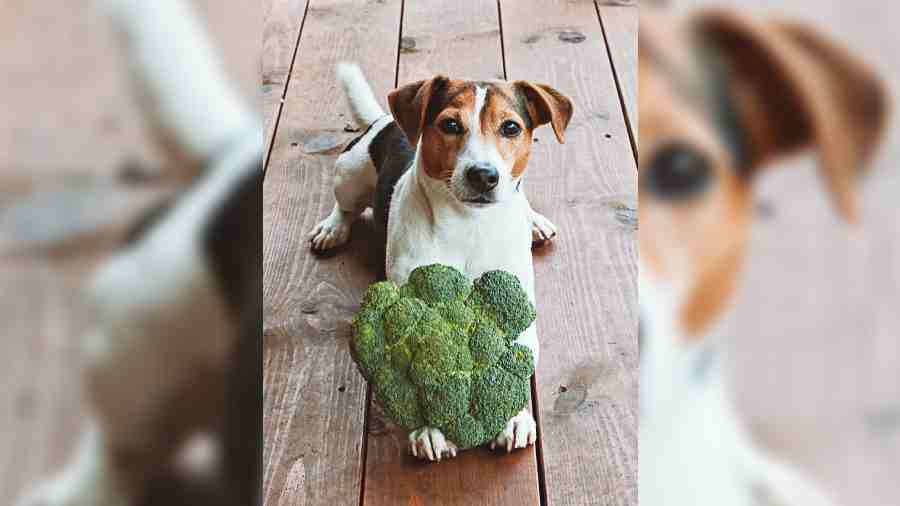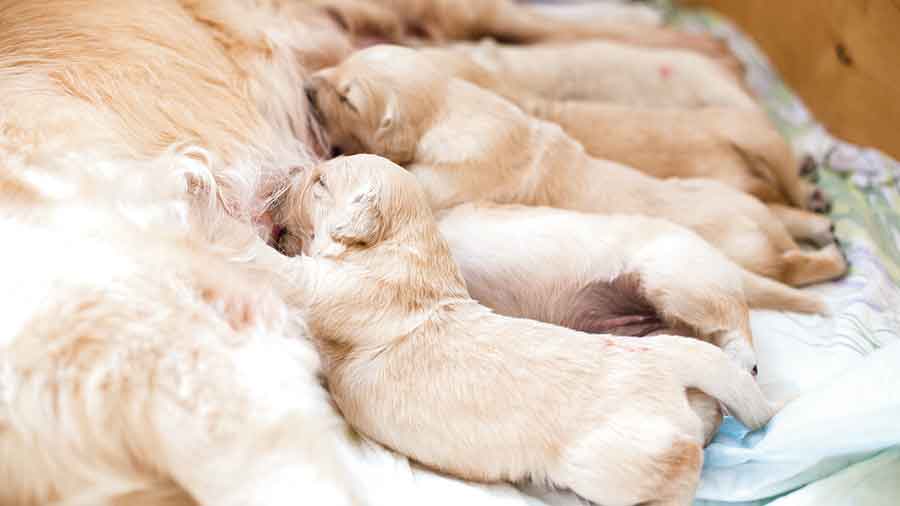Nothing can ruin a pet parent’s day like a pet refusing to eat. While your dog may crave for treats all the time, it’s important to serve him a balanced diet including all major food groups.
In the last edition, we saw how important meat, carbohydrates and water is for dogs. This week, let us find out what else they need and also, how much of it they need.
Essential fats
Appropriate portion of good fats are essential for your dog’s well-being. It will not make them obese. A balanced diet for a pup must include omega 3 fatty acids, especially DHA. It may help in improving their cognitive, psychomotor, immunologic, memory and retinal functions. It will also help improve their trainability during the growing period. The most common sources of fats for dogs are chicken fat and fish oil, especially salmon oil.
Fruits

Fruits are required for a healthy balanced diet for your pets. Banana, apple, watermelon, cucumber, mango, blueberries and muskmelon can be included in their diet.
Grapes are potentially hazardous for dogs. Feeding or consumption of grapes may result in acute kidney injury. So grapes and raisins should not be given to your pets. Different parts of the fruit avocado contain toxin persin which can cause gastro intestinal disturbances in dogs. So avocado must not be given to dogs.
No chocolates

Never give chocolates to dogs.
Never give chocolates to dogs, no matter how much they ask for it. Chocolate is toxic to dogs due to its theobromine content that they are unable to metabolise. Symptoms may vary from vomiting and diarrhoea to muscle tremor, seizures and heart failure. The greater the amount of chocolate consumed the graver the symptoms are.
More meals for pups
The numbers of meals a day is generally higher in puppy stages. Till the age of three months, they need four meals a day. After that, the meals may be decreased to three a day.
It is also essential to make the puppy food wet with appropriate amount of warm water. The recommended protein range for healthy puppy growth is 22-32 per cent on dry matter basis. Dry matter basis is the percentage of nutrients in a pet food’s when its moisture content is nil. This would help optimise their immune function.
The fat content in a puppy’s diet should be between 10-25 per cent on a dry matter basis. This rationing will help them avoid developmental orthopedic diseases later in life.
Energy for the expecting
Like pups, pregnant and nursing bitches also require optimum nutrition. Obesity is the most common problem in pregnant bitches and may cause difficult or prolonged labour.
A pregnant bitch requires 30-60 per cent more energy in the third trimester of her pregnancy. The size of the litter is a contributing factor here.
Knowing that they need much more food now, pet parents sometimes tend to feed them too much mutton or pork, that can lead to diarrhoea. Avoid these and instead, go for easily digestible foods such as packed food or soft, over-boiled rice, pumpkin, fish and well-boiled mashed chicken.
The typical caloric requirement during late lactation is twice the normal requirement. After weaning, the amount of food should be reduced depending on the mother’s health condition.
Geriatric diet

Dogs love and require meat in their diet
There is more than one school of thought that comes into play when determining the seniority of a dog. Some say that once a dog crosses half of its estimated age, it is to be considered senior.
Others prefer to go by breeds. For small breeds like Spitz, Lhasa Apso and Shih Tzu, a dog is considered senior if he crosses nine of 10 years of age. Medium breeds like Beagle and Cocker Spaniel as well as large breeds like Labrador are considered senior after six or seven years. For giant breeds like St Bernard and Great Dane five or six years is the benchmark.
Either way, senior dogs are more vulnerable to cancer, kidney diseases, heart diseases and obesity but a balanced nutrition may help mitigate the risk of developing many of these. The calorie intake should be reduced depending on their body and muscle condition.
Vegetarian homes

While it must be understood that a dog will not be healthy feeding exclusively on rice, curd and vegetables, it is also important to acknowledge the sentiments of vegetarian pet parents, who are not comfortable with feeding animal proteins to their pets.
The solution is packaged dog food. Visit your vet for advice on how much of this to serve the dog throughout the day. He will guide you as per the dog’s age, breed etc.
Chhana or paneer is fine as a vegetarian treat once in a while. Curd too is healthy. But other than these, avoid milk products like the plague.
Many pet parents ask if they should go for home-cooked food or packaged foods and the answer is not “or” but “and”. While home food is fine, the dog must be acclimatised to packed food too.
Imagine a scenario where you have to make an emergency trip out of town, leaving your dog at a creche. He will be distraught by separation anxiety and it will only make matters worse if he is served chicken-rice that doesn’t taste like the one made at home. In such a situation, he will be comforted if he is offered the familiar taste of packaged food that he eats at home sometimes.

Abhiroop Banerjee, is a veterinarian who sits at Pet Mall and Murphy Veterinary Hospital in GD Block and Pooches N More in Lake Town, shares tips on petcare
